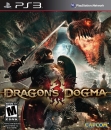Zod95 said:
If that's so, yeah, slightly ahead. Now add Game Cube numbers and things must be even. And now take into account how frontloaded PS4 and XOne were (1 month in 2013 will most probably account for more than 6 months in 2014) in comparison to PS3 and Wii (1 month in 2006 accounted for much less than 6 months in 2007). In my graphic, 2013 got benefited by that. The truth will come out when we get the totals of 2014 and 2015. Otherwise, going by your logic, we must expect a massive growth of total sales this year (as we saw from 2006 to 2007). |
Front-loaded yet both X1 and PS4 are still selling much faster than their predecessors at the same point their respective life cycles. These are typically the slowest months of the year in sales regardless yet Sony are having trouble keeping up with demand.
And Gamecube shipments were well under 1 million by 2006, so it'd still end up lower than the 2013 total. If you actually add up the PS3 and 360 from last they're actually around 14 million so that's actually in keeping with the end of the previous gen.
The first full year is usually the transitional period (this year) where total growth is slow due to the decline of the older consoles. I'd expect to see significant growth in 2015 but I would still expect a decent amount of growth YOY. The PS4 is actually on track to sell similar numbers to the Wii in 2007 and the X1, despite what people are saying, is also selling well for a console's first year. Expect low numbers for PS3 and 360, but in keeping with the decline of the PS2 in 2007.



















































